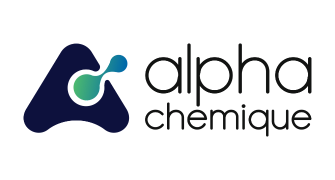Zinc Stearate Introduction:
Welcome to Alpha Chemical Corp‘s informative blog post on zinc stearate. In this article, we will explore the properties, benefits, and uses of this versatile compound. Join us as we delve into the world of zinc stearate and its significance in various industries.
Properties:
- Zinc stearate is a white, fine powder that is insoluble in water. It is derived from stearic acid, which is a fatty acid found in various animal and vegetable fats. Some key properties of zinc stearate include:
- Lubricating Properties: Zinc stearate has excellent lubricating properties, making it useful in many applications where reduced friction and improved flow properties are desired.
- Water Repellency: Zinc stearate is hydrophobic, meaning it repels water. This property makes it useful in applications where moisture resistance is required.
- Thermal Stability: Zinc stearate exhibits good thermal stability, allowing it to withstand high temperatures without decomposition. This makes it suitable for use in applications involving heat and processing at elevated temperatures.
- Non-Toxicity: Zinc stearate is considered non-toxic and safe for use in various applications, including food-related applications. It has a long history of use in the industry and has been approved by regulatory bodies for specific applications.
Benefits and Uses:
- Plastic and Rubber Industries: Zinc stearate is widely used as a lubricant and release agent in the plastic and rubber industries. It helps improve the flow properties of the material during processing, prevents sticking, and enhances mold release.
- Paints and Coatings: Zinc stearate is used as a flatting agent in paints and coatings. It helps reduce gloss, improve leveling, and enhance the overall performance of the coating.
- Cosmetics and Personal Care Products: Zinc stearate finds applications in cosmetics and personal care products, including makeup, powders, and creams. It functions as a bulking agent, binder, and anti-caking agent, improving product texture and performance.
- Pharmaceuticals: Zinc stearate is used in pharmaceutical formulations as a lubricant and glidant. It helps improve the flow characteristics of powders, aids in tablet compression, and enhances drug release.
- Food Industry: Zinc stearate is utilized in the food industry as an anti-caking agent. It prevents clumping and improves the flowability of powdered food products such as spices, seasoning blends, and powdered drink mixes.
- Other Applications: Zinc stearate also finds use in various other applications, including adhesives, sealants, textile industry, and as a mold release agent in the production of ceramics and metal castings.
Safety Considerations:
- Regulatory Compliance: When using zinc stearate in food or pharmaceutical applications, it is important to ensure compliance with relevant regulations and guidelines to guarantee product safety and quality.
- Proper Handling and Storage: Like other powdered substances, zinc stearate should be handled and stored in a well-ventilated area, away from ignition sources and incompatible materials. Proper personal protective equipment should be used when handling the powder.
Conclusion:
Zinc stearate is a versatile compound known for its lubricating properties, water repellency, and thermal stability. It finds applications in various industries, including plastics, rubber, paints, cosmetics, pharmaceuticals, and food. The benefits of zinc stearate in improving flow properties, mold release, and texture make it an essential ingredient in many products. As with any chemical, it is important to handle and use zinc stearate in accordance with safety guidelines and regulatory requirements to ensure safe and effective utilization.

